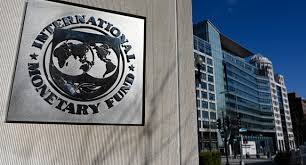By Milcah Tanimu
Nigeria’s current account balance has seen a notable surplus of $1.432 billion in 2024, according to the International Monetary Fund’s (IMF) World Economic Outlook Database. This marks a significant increase from the $1.21 billion surplus recorded in 2023.
A country’s current account balance encompasses its trade balance, net income, direct transfers, and asset income, providing a comprehensive overview of its international economic transactions. A positive balance indicates a net lending position, whereas a negative balance reflects a net borrowing position.
The rise in Nigeria’s current account surplus is attributed to the nation’s growing gross national savings and investment. In 2024, gross national savings rose to 26.32% of the Gross Domestic Product (GDP), up from 24.61% in 2023. Total investment also increased to 25.75% of GDP in 2024, compared to 24.28% in the previous year.
Economic experts have lauded this development, viewing it as a sign of a robust economy driven by increased economic activity and confidence. The growth in savings suggests a rise in disposable income and a shift towards a more savings-oriented economy, while the increase in investment indicates a boost in economic activity and potential for future growth.
Economist Olorunfemi Idris commented, “This surplus in the current account balance suggests a favorable trade balance and income situation, further bolstering Nigeria’s economic stability.”
As Africa’s largest economy, Nigeria’s economic growth and stability are crucial for the continent. Efforts to diversify the economy and improve economic fundamentals have yielded positive results, attracting investors and boosting economic activity.
The IMF data presents a positive outlook for Nigeria’s economic growth and stability, indicating a growing economy with increasing investment and savings. This trend is expected to continue, driving further economic growth and stability in the region.

